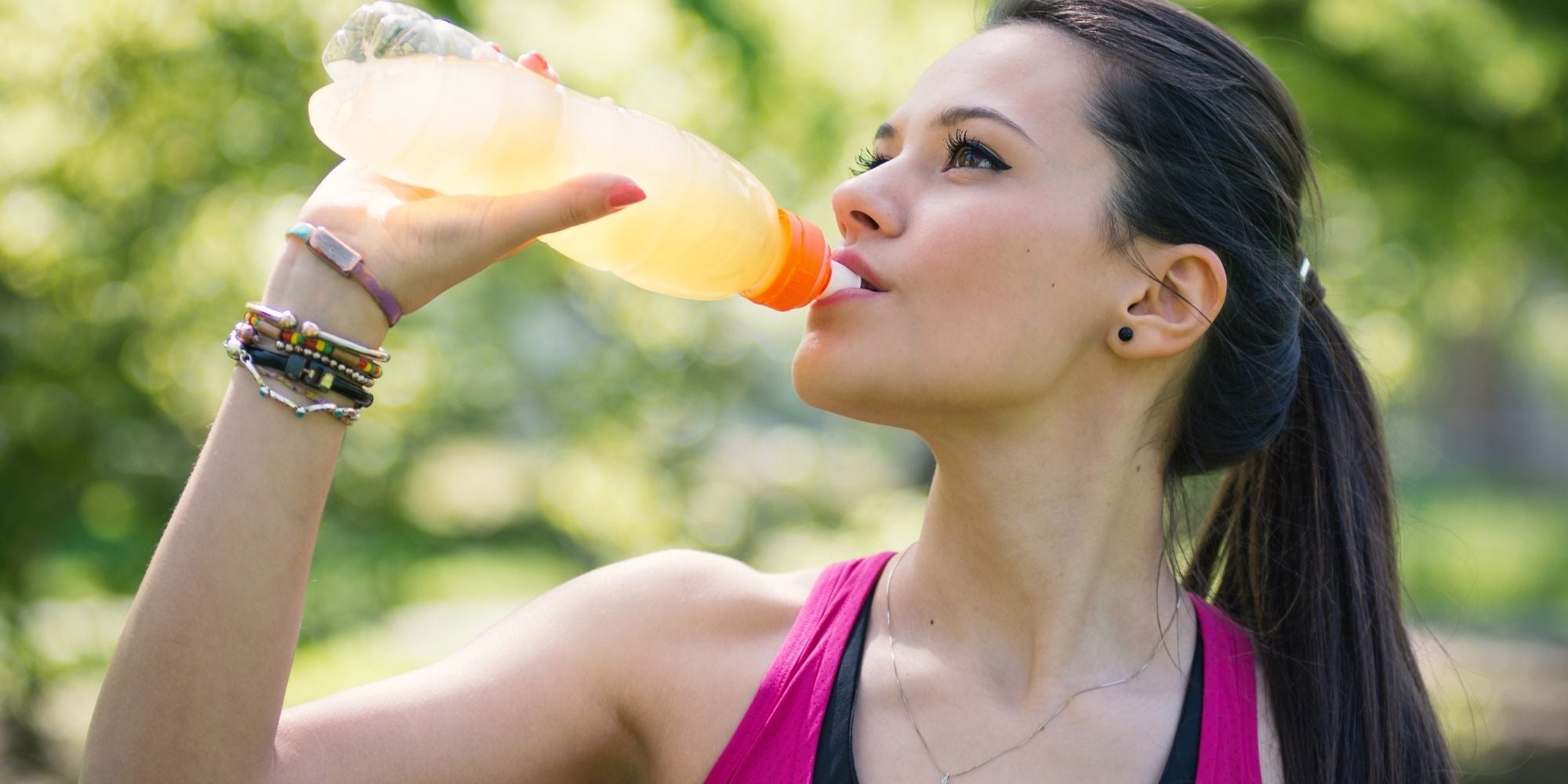
It's not easy waking up the morning after a long night of drinking with the dreaded hangover. Have one of your friends or someone on social media ever claimed that Gatorade helps hangovers or Gatorade is good for hangovers? Gatorade is a sports drink that has been around for decades and yet many people don't know about the science of it when it comes to drinking. Here we'll answer the age old question, does Gatorade help a hangover, and the actual science behind it.
Everyone knows the consequences of a night of drinking: a splitting headache, nausea, the shakes and all-around misery. Hangovers are caused by a combination of factors. And the severity of your hangover depends on several factors: how much alcohol was consumed, how quickly it was consumed and your size and weight.
In our research we find three main causes of a hangover. A hangover is caused by a combination of acetaldehyde toxicity, dehydration, and inflammation.
Gatorade is one of America's most popular sports drinks. It was created in 1965 by a team of doctors at the University of Florida for the school's football team, the Gators. The drink has since become an integral part of many athletes' routines, but does Gatorade help a hangover? Let's take a look at the science behind this claim and see if it holds any water.
The answer, as you may be expecting, is slightly complex. Many hangover symptoms are caused by dehydration and lost electrolytes, which means that Gatorade will help relieve some of the associated symptoms such as thirst and part of headaches. However, other hangover symptoms are caused by the buildup of acetaldehyde in your system, which is a byproduct of alcohol breakdown in your liver. These symptoms include nausea, vomiting, dizziness and headaches. Gatorade cannot cure all of these symptoms—but it can help with some.
The verdict, does Gatorade help with a hangover? Yes, but only in part, it does not help with all the symptoms associated with a hangover. It certainly will help with dehydration and electrolyte loss due to drinking alcohol that has some subtle benefits.
Now that you know the answer to does Gatorade help hangover, you may still wonder how.
When drinking alcohol we know we're dehydrated and we know that water is great for rehydration. Research has shown that drinking water alone doesn't help as much as drinking a solution of water and electrolytes does.
Gatorade is made up of water and three electrolytes including sodium, potassium and chloride — that make you feel better because they're replacing electrolytes better than simply drinking straight water.
Unfortunately, though, Gatorade is also loaded with sugar (in the form of glucose). This is meant for athletes during prolonged periods of intense exercise when they need to replenish after intense sweating.
Sports drinks like Gatorade provide carbohydrates in the form of sugar, which gives energy back to the athlete as he or she continues to work out. But if you're not exercising to begin with, then the extra carbohydrates in sports drinks are unnecessary and could actually lead to weight gain. Even worse than this possible weight gain is the fact that these sugars can cause an upset stomach and gastrointestinal distress—not exactly what you want when you're looking for Gatorade to help your hangover.
In addition to being high in calories and sugar, Gatorade contains artificial colorings, modified food starch, glycerol ester of rosin, and caramel color which is considered a possible human carcinogen.
The short answer is: It depends. While both drinks aims to prevent dehydration, they can both help with the dehydrating effects of alcohol contributing to a hangover.

If you're looking for the drink with the most electrolytes and less carbs, calories and sugar, Pedialyte wins.
It's best to look for a healthier hydration product rather than Gatorade and Pedialyte if you want to avoid the unhealthy amounts of sugar and other harmful ingredients. Products like Zaca's chewable electrolyte tablets contain no gmo's, no sugar, low carbs and calories, and no artificial flavors or sweeteners.
The good news is there's homeopathic remedies for hangovers and vitamins to help a hangover. We've found numerous studies to back up two ingredients showing they help hangovers.
Here's two ingredients shown in research to combat hangovers:
The combination of these two ingredients, Dihydromyricetin (DHM) and Prickly Pear, can give you body sufficient nutrients to combat many of the negative effects of alcohol that cause hangovers.

Zaca is the first liver aid chewable supplement specifically designed to help your body replenish, rehydrate and recover. Formulated with both Dihydromyricetin (DHM) and Prickly Pear, Zaca encourages the body's natural detoxification process, support liver function, and replacing key nutrients lost when drinking. Eat the delicious tasting berry chewables before bed for maximum performance. Don't regret that last drink, fight back with Zaca and try this Hydration + Liver Aid supplement today!
SOURCES
1. Effects of alcohol hangover on cytokine production in healthy subjects
https://pubmed.ncbi.nlm.nih.gov/14693266/
2. The Inflammatory Response to Alcohol Consumption and Its Role in the Pathology of Alcohol Hangover
https://www.ncbi.nlm.nih.gov/pmc/articles/PMC7408936/
3. Semen Hoveniae extract protects against acute alcohol-induced liver injury in mice
https://pubmed.ncbi.nlm.nih.gov/20673184/
4. A standardized extract of the fruit of Hovenia dulcis alleviated alcohol-induced hangover in healthy subjects
https://pubmed.ncbi.nlm.nih.gov/28750942/
5. Effect of Opuntia ficus indica on symptoms of the alcohol hangover
https://pubmed.ncbi.nlm.nih.gov/15226168/
Copy the coupon code & use it at checkout